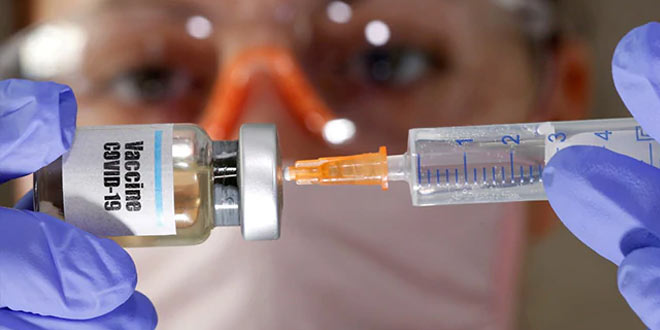Highlights
- We have a 3-storeyed building which can be used for storing vaccines: MD
- We have adequate healthcare facilities to distribute vaccines: Mr. Jain
- We have 600 cold storage points: Mr. Seth
New Delhi: The Delhi government-run Rajiv Gandhi Super Specialty Hospital has been identified as the city’s first storage facility for COVID-19 vaccine. B L Sherwal, the managing director of the hospital, said a team from the Union Health Ministry has surveyed the building and approved it. “The Delhi government had asked us to provide space to store vaccines. We have a three-storeyed building which can be used for this purpose. It has around 8,000 metre square area where vaccines can be stored. Some work needs to be done to convert it into a cold storage facility. The doors need to be enlarged to ensure entry of deep freezers. More power points will be needed,” Mr. Sherwal said.
Also Read: COVID-19 Vaccine: Phase-3 Trial Of Bharat Biotech’s Covaxin Commences In AIIMS
Health Minister Satyendar Jain on Friday (November 27) said that there is sufficient infrastructure and equipment available in the national capital to vaccinate its entire population in a few weeks once a COVID-19 vaccine is available.
We have a large number of health care facilities, such as mohalla clinics, poly clinics, and hospitals etc, where a COVID-19 vaccine can be administered to people, Mr. Jain told reporters.
Mr. Jain also said Delhi should be given priority during the distribution of the vaccine as it is the national capital. On Thursday, Delhi’s Immunisation Officer Suresh Seth said the national capital is geared up for the COVID-19 vaccination programme and the city’s entire population can be covered in a month.
We have 600 cold storage points and around 1,800 outreach sites for the universal immunization programme for children. We have sufficient equipment for vaccines that can be stored at a temperature of 2 to 8 degrees Celsius and those that need minus 15 to minus 25 degrees Celsius. The central government is further strengthening the infrastructure and providing more equipment, Mr. Seth had told PTI.
He had said the equipment and infrastructure for vaccines that need ultra-cold conditions (minus 70 degrees Celsius) are not there, but “we don’t think there will be any problem logistically because the immunization programme will be carried out in a phased manner”. “If we involve hospital staff and nurses etc, we can easily vaccinate the entire population in a month,” he had said, adding that at present, the Delhi government is collecting data of health care workers who are at top of the priority list of the Delhi government.
(Except for the headline, this story has not been edited by NDTV staff and is published from a syndicated feed.)
NDTV – Dettol Banega Swasth India campaign is an extension of the five-year-old Banega Swachh India initiative helmed by Campaign Ambassador Amitabh Bachchan. It aims to spread awareness about critical health issues facing the country. In wake of the current COVID-19 pandemic, the need for WASH (Water, Sanitation and Hygiene) is reaffirmed as handwashing is one of the ways to prevent Coronavirus infection and other diseases. The campaign highlights the importance of nutrition and healthcare for women and children to prevent maternal and child mortality, fight malnutrition, stunting, wasting, anaemia and disease prevention through vaccines. Importance of programmes like Public Distribution System (PDS), Mid-day Meal Scheme, POSHAN Abhiyan and the role of Aganwadis and ASHA workers are also covered. Only a Swachh or clean India where toilets are used and open defecation free (ODF) status achieved as part of the Swachh Bharat Abhiyan launched by Prime Minister Narendra Modi in 2014, can eradicate diseases like diahorrea and become a Swasth or healthy India. The campaign will continue to cover issues like air pollution, waste management, plastic ban, manual scavenging and sanitation workers and menstrual hygiene.
[corona_data_new]















